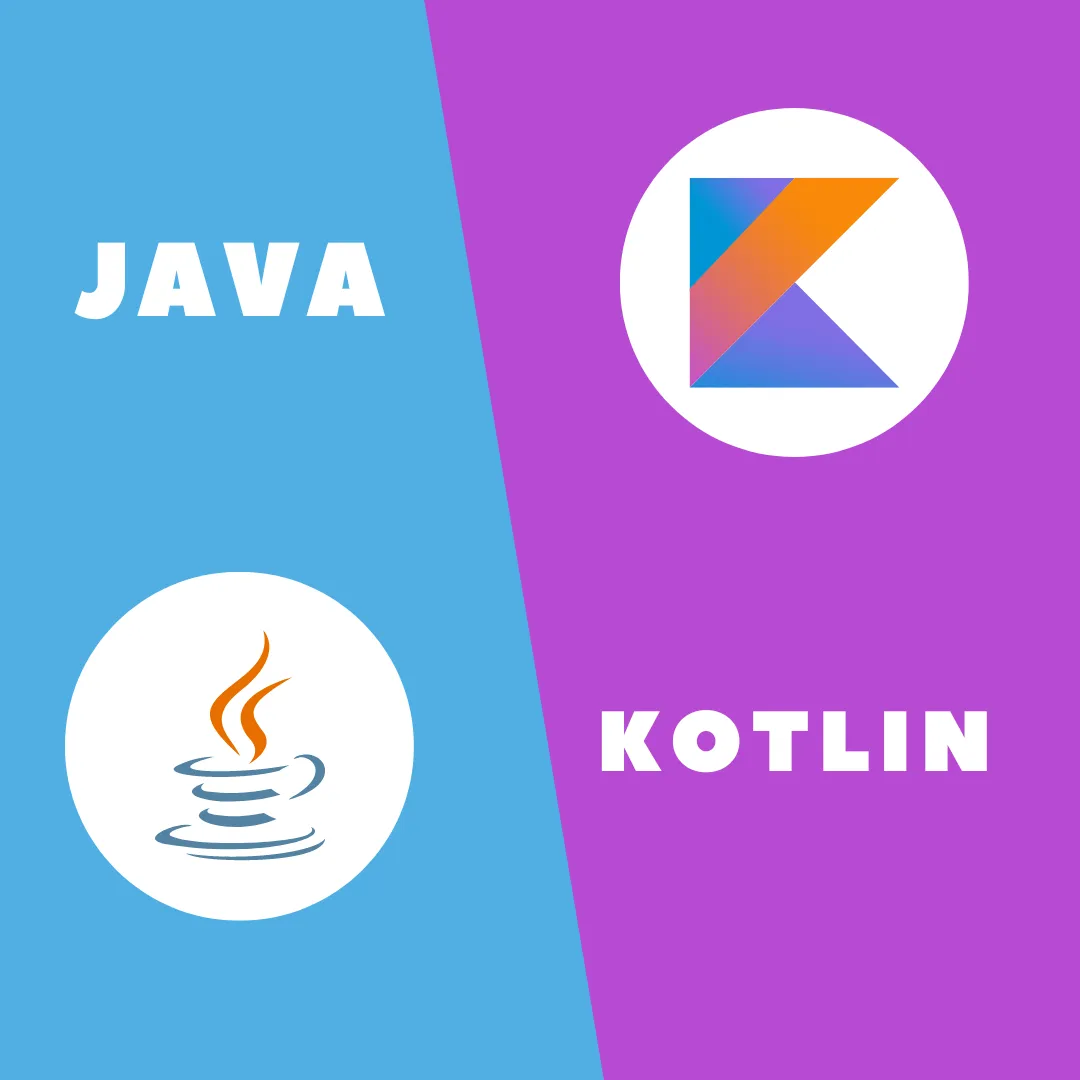When it comes to Android app development, choosing the right programming language is crucial. Now that Kotlin is a popular Java substitute, developers have more options. We will contrast Kotlin and Java in this article, examining each language’s advantages in terms of null safety, interoperability, productivity, performance, and community support. This post will help you make an informed choice whether you are a seasoned Java developer fascinated by Kotlin or a novice to Android development. Let’s explore Kotlin and Java for developing Android apps!
In this blog post, we’ll provide a comparison between Kotlin and Java. We’ll cover the following topics:
- Language Syntax and Simplicity
- Null Safety and Type Inference
- Interoperability with Java
- Developer Productivity
- Performance and Compilation
- Community and Industry Support
- Conclusion
-
1. Language Syntax and Simplicity
It’s critical to understand how the variations between Kotlin and Java’s syntax affect coding productivity. With reduced verbosity and boilerplate, Kotlin’s compact and expressive syntax enables more effective readable code. Kotlin helps programmers to write clearer, more concise code with capabilities like type inference and smart casting. Conversely, Java offers engineers a familiarity with its well-established syntax, making the transfer from Java-based projects easier. Java also benefits from its broad libraries and resources, which give developers access to a variety of tools and support.
-
2. Null Safety and Type Inference
NullPointerExceptions are one of the most prevalent problems in programming, and Kotlin’s built-in null safety feature addresses this. Variables in Kotlin are never null by default, and the type system of the compiler ensures null safety. Runtime crashes are less likely as a result, and manual null checks are no longer necessary.
Java, in contrast, lacks built-in null safety, necessitating explicit handling of null data and null tests by developers. This raises the likelihood of running into NullPointerExceptions. Additionally, compared to Java, which frequently necessitates explicit type declarations, Kotlin’s type inference capability enables developers to forgo explicit type declarations in many situations, minimizing boilerplate code.
-
3. Interoperability with Java
It is simple to take benefit of the substantial Java ecosystem with Kotlin’s flawless interoperability with existing Java code. Kotlin projects can utilize pre-existing Java libraries, frameworks, and tools since Kotlin code can call Java code and vice versa.
Additionally, Kotlin is fully compatible with Java libraries and frameworks, allowing programmers to easily include their preferred Java dependencies in Kotlin projects.
Kotlin also allows for the progressive switch from Java to Kotlin. The first step for developers is to convert specific Java files to Kotlin while leaving the remainder of the codebase in Java. This method of incremental migration makes the change easy and causes the fewest disturbances to ongoing tasks.
-
4. Developer Productivity
The functionality of Kotlin, including its extension functions, coroutines, and smart casts, greatly increases developer output. More reusable and expressive code is produced as a result of the ability of extension functions to add new functionality to existing classes without changing their source code. Coroutines offer succinct, sequential asynchronous programming, which simplifies thread management. Smart casts take the place of explicit type checks and casts, improving code readability and lowering error rates.
The more verbose nature of Java, in contrast, frequently necessitates writing more lines of code to achieve the same functionality, potentially delaying development and increasing boilerplate.
The advantages of Kotlin let developers write cleaner, shorter code while increasing productivity and speeding up development.
-
5. Performance and Compilation
Since both languages compile to bytecode that runs on the Java Virtual Machine (JVM), Kotlin and Java exhibit significant performance similarities. Performance differences are typically caused by the runtime environment, not the languages themselves.
It’s crucial to remember that any alleged performance variances between Java and Kotlin are often the result of changes in the runtime environment. Both languages make use of the JVM, which eventually runs the bytecode that has been compiled.
The production of Kotlin’s bytecode is highly efficient thanks to the compilation process. Additionally, Kotlin has consistently advanced the runtime performance of its iterations, fixed issues and giving faster execution speed than previous versions.
In conclusion, Kotlin and Java both offer comparable performance capabilities, with Kotlin’s continual development being aided by its effective compilation method and runtime improvements.
-
6. Community and Industry Support
Kotlin’s acceptance by programmers and businesses has significantly increased in recent years. Official Google backing, which has elevated Kotlin to a first-class language for Android development, has propelled its growth. Kotlin’s place in the industry has been cemented by this support from Google, which has also prompted greater adoption.
With regards to resources, documentation, and active community support, Java and Kotlin are equally advantageous. The Kotlin community has grown and now provides a multitude of tutorials, libraries, and learning resources. Like Python, Java has a strong community and a wealth of resources at its disposal.
Developers have access to a wealth of tools and vibrant communities to help their learning and development processes thanks to the industry and community support that both languages have received.
-
7. Conclusion
In conclusion, choosing Kotlin vs Java for the development of Android apps demands significant thought. While Java gives convenience and a wide range of libraries, Kotlin offers clear syntax, null safety, and type inference. Consider the requirements of the project, the team’s experience, and your own preferences to make the right choice. It’s crucial to match the strengths of the two languages with the demands and objectives at hand. Whether you choose Kotlin or Java, concentrate on using the language’s capabilities to deliver exceptional Android apps. Remember, the key is to master the chosen language effectively and persistently striving for excellence.
Thank You for reading a our blog. Follow us on Medium for regular updates


